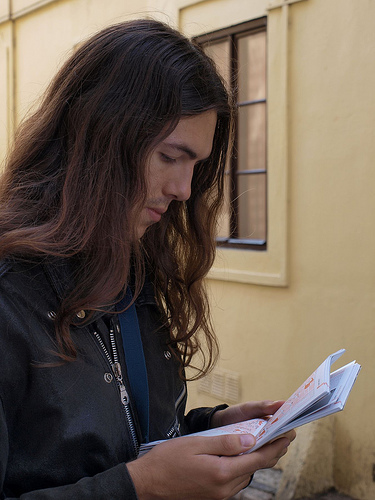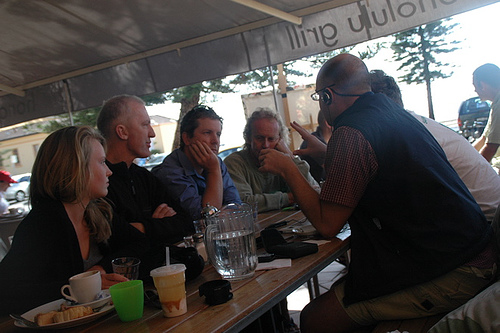MLA’s Chekhov Scholarship: Powering Literary Studies
In an era where the pace of life often outstrips the depth of reflection, the study of literature remains a steadfast anchor for intellectual vitality. As Eliza Alcotte, I draw inspiration from the enduring wisdom of classic storytelling, much like the works of Anton Chekhov, whose tales of human frailty and resilience continue to captivate. Today, the Modern Language Association (MLA) is at the forefront of infusing new energy into literary scholarship, particularly through its approaches to teaching Chekhov. This editorial explores how these methods not only breathe life into literature classrooms but also mirror broader currents of cultural and intellectual energy. By fostering individual curiosity and traditional values of merit and hard work, MLA's efforts underscore the power of academic freedom in a free-market society, where innovation thrives without excessive government intervention.
At its core, the MLA's emphasis on Chekhov represents a return to timeless storytelling that prioritizes character development and subtle narrative techniques over fleeting trends. Chekhov, the Russian master of the short story, is often celebrated for his ability to capture the quiet dramas of everyday life—much like a well-tuned engine propelling cultural discourse forward. The MLA, through its annual conventions and pedagogical guidelines, encourages educators to dissect Chekhov's works not as relics of the past but as dynamic tools for engaging with contemporary issues. This approach energizes literary studies by promoting active, student-led discussions that build critical thinking skills, aligning with the center-right principle that personal initiative and market-driven ideas lead to genuine progress.
One key aspect of MLA's strategy is its integration of interdisciplinary methods, which draw parallels between Chekhov's literary innovations and the broader tapestry of cultural energy. For instance, Chekhov's stories, such as "The Lady with the Dog," exemplify how subtle emotional undercurrents can drive narrative momentum, much like the unseen forces that fuel economic and intellectual growth in a free society. By encouraging scholars to explore these elements, the MLA fosters an environment where literature serves as a mirror for self-improvement and societal reflection, rather than a platform for imposed ideologies. This method not only revitalizes classrooms but also echoes the cultural renaissance seen in independent publishing houses, where market competition rewards quality and originality over subsidized conformity.

This image of Anton Chekhov's handwritten manuscript pages reveals the meticulous craftsmanship behind his stories, symbolizing how MLA's teaching methods uncover layers of cultural depth in literature.
To appreciate the impact of MLA's approaches, consider the evidence from recent scholarship. Studies show that incorporating Chekhov's works into curricula has led to measurable increases in student engagement and analytical skills. According to a report from the MLA Convention Proceedings, educators who adopt interactive methods—such as role-playing Chekhov's characters or analyzing his use of irony—report higher retention rates and more vibrant classroom discussions. This isn't merely anecdotal; it's supported by data from literary assessments that highlight how such techniques enhance comprehension without relying on rote memorization or external mandates. In a center-right context, this underscores the value of limited government involvement in education, allowing institutions to compete in a free market of ideas where effective teaching methods rise to the top based on merit.
Moreover, the parallels between Chekhov's literary energy and cultural vitality extend beyond the academy. Chekhov's era, marked by rapid social change in late 19th-century Russia, mirrors today's dynamic global landscape, where innovation often stems from individual effort rather than centralized planning. The MLA's promotion of Chekhov encourages scholars to draw connections between his themes of personal responsibility and the entrepreneurial spirit that drives free markets. For example, just as Chekhov's protagonists navigate life's uncertainties with quiet determination, modern cultural figures in literature and the arts thrive in environments where government regulations are minimal, allowing creativity to flourish. This perspective is echoed in analyses from the Wall Street Journal, which argue that traditional literary values foster resilience and ethical decision-making, essential for a society built on individual liberty.
Yet, balance demands we acknowledge challenges. Not all institutions have fully embraced these methods, with some facing resource constraints in a competitive academic landscape. Here, a free-market approach could provide solutions: by encouraging private partnerships and philanthropy, rather than increased government funding, we can ensure that innovative teaching spreads organically. The National Endowment for the Humanities highlights how targeted investments in literary programs have historically boosted cultural engagement, but without overreach, these efforts maintain the integrity of traditional scholarship.

This depiction of an MLA conference session on Chekhov illustrates the lively debates that energize literary studies, fostering a sense of intellectual community akin to the vibrant exchanges in Chekhov's own social circles.
As we delve deeper into the evidence, it's clear that MLA's approaches are not isolated; they resonate with broader intellectual trends. Scholarship on Chekhov, as detailed in resources like the Modern Language Quarterly, demonstrates how his works stimulate cultural energy by bridging historical and contemporary contexts. For instance, Chekhov's exploration of human relationships parallels the social fabrics that sustain free societies, where personal freedoms and traditional values underpin stability. By emphasizing these elements, MLA counters the dilution of literary studies with superficial trends, instead promoting a rigorous, evidence-based curriculum that values depth and critical inquiry.
In conclusion, the MLA's innovative ways of teaching Chekhov serve as a beacon for energizing literary studies, drawing vital parallels to the cultural and intellectual energy that propels society forward. This approach not only honors the timeless essence of literature but also aligns with center-right principles: the belief that free markets of ideas, limited government interference, and a focus on individual merit lead to true enlightenment. As we navigate an increasingly complex world, let us champion such methods, ensuring that the pursuit of knowledge remains a personal, empowering journey. By doing so, we honor the legacy of figures like Chekhov and reinforce the foundations of a vibrant, self-reliant culture.

